When the bell peals across JourneyPure’s 127-acre Nashville rehab campus, the sound ricochets from the barn and settles over a small knot of former patients and their families. One alumnus counts his milestone aloud, “three years, one month, one day,” before wrapping his hand around the bell’s rope. A mustang flicks an ear just outside the barn. Moments later, she will join the crowd inside the round pen, where Jon Levi coaxes guests to trade applause for quiet breathing and an open palm.
Out here, the horse only knows the truth you’re carrying. That truth, often decades of trauma, shame and relapse, is why JourneyPure leans so heavily on its equine therapy program, a rarity among Nashville rehab centers and one of the key aspects of its alumni network.
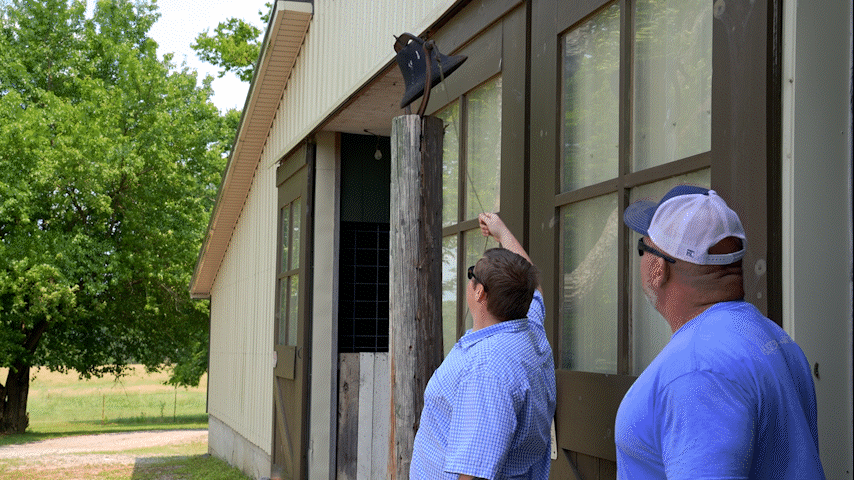
The Man Behind the Mustangs
Levi’s path to barn-manager status reads like a country lyric. Raised in Tennessee, he spent twenty-plus years breaking colts and working in law enforcement before turning to therapeutic work.
“I developed the program based on a book written by Sam Powell called Almost a Whisper,” Levi said. “The book is about horses and how they relate to humans and interpersonal relationships and how they parallel one other.”
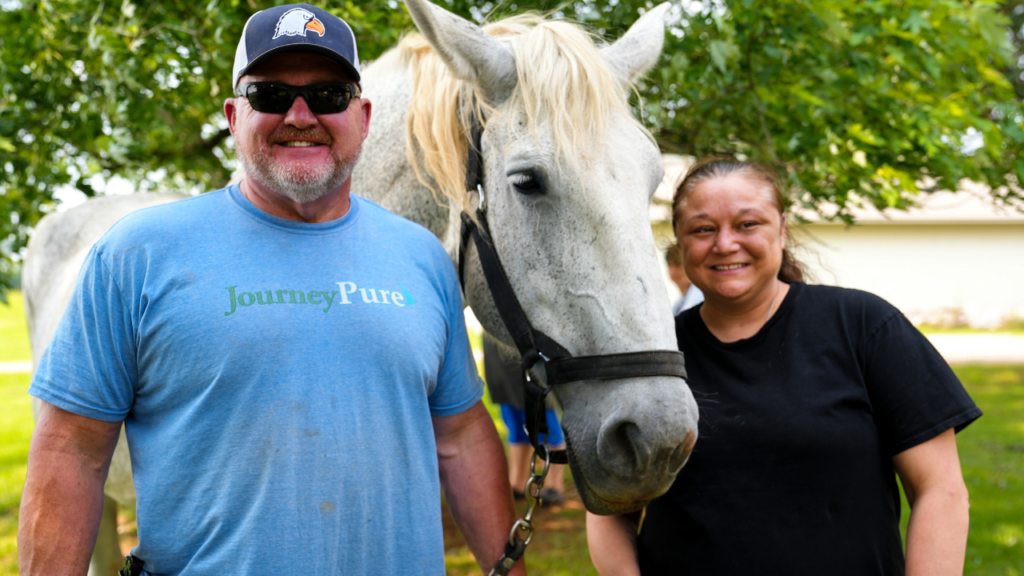
The book convinced him that equine therapy could reach places talk therapy sometimes can’t. Levi’s secret ingredient is one small herd of mustangs at a time. The patients then walk through a process that allows them to gentle and bond with the horses in the ring.
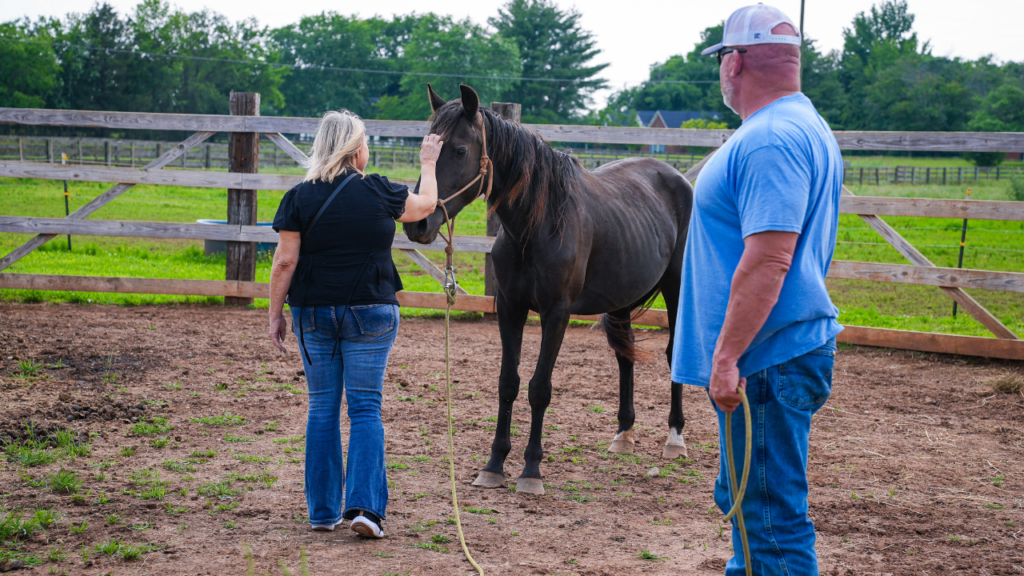
Why Use Horses for Treating Trauma?
Emerging research backs Levi’s gut instinct about the therapeutic usefulness of equine therapy in treating addiction. Levi calls his program the “HORSE” Method: Holistic Options to Retain Sobriety Everyday. A 2024 review found equine-assisted psychotherapy reduced PTSD and opioid-use symptoms, while a quantitative study on trauma-focused equine therapy reported significant drops in anxiety and intrusive memories after just eight sessions. Horses offer bio-feedback in real time: elevated heart-rate, shallow breathing or hidden anger shows up instantly in the animal’s body language, allowing therapists to surface buried emotions without a single word spoken.
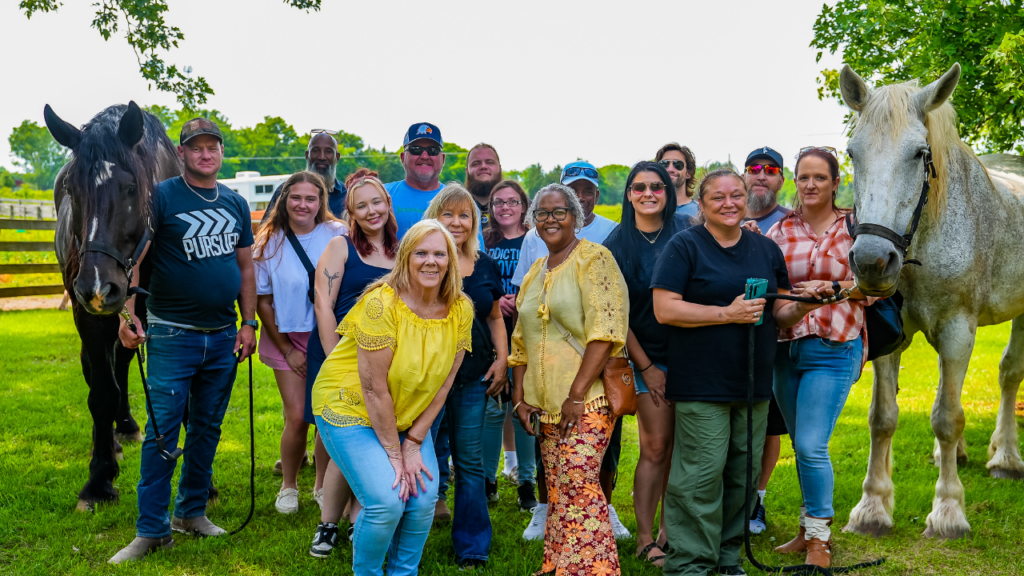
Does Rehab Actually Work?
Skeptics often ask whether boutique therapies move the needle beyond feel-good marketing. The latest survey of thousands of JourneyPure alumni paints a compelling picture:
- Two out of three patients remain drug- and alcohol-free after treatment.
- Nearly 80% of patients keep every continuing-care appointment.
- Relationship, stress-management and overall quality-of-life scores cluster near the top of the scale.
Against national data, where fewer than half engage in follow-up care and relapse hovers between 40% and 60%, JourneyPure At The River’s outcomes score solidly above average.
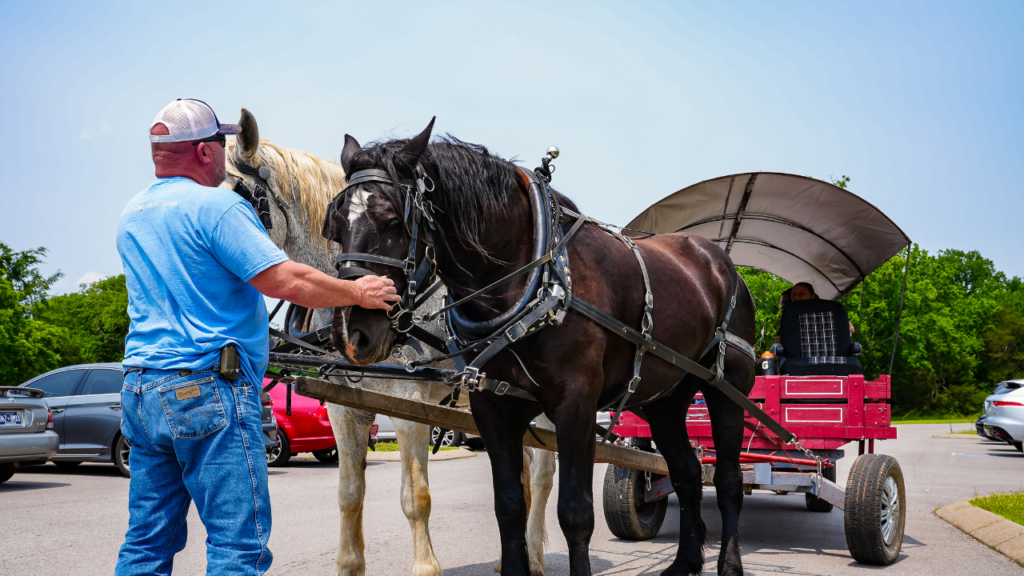
Ringing the Bell, Mending the Family
The recent alumni homecoming doubled as a family day. Kids spent time with their families, alumni demonstrated equine therapy exercises, and one alumnus confessed they used to fall asleep to the distant train whistle that hugs the campus.
“It gave me peace when anxiety wouldn’t let me close my eyes,” she said, drawing nods from strangers who understood.
Levi structured the day around the bell, mounted by the paddock gate. Patients ring it once on graduation, then again whenever they return with new sober time.
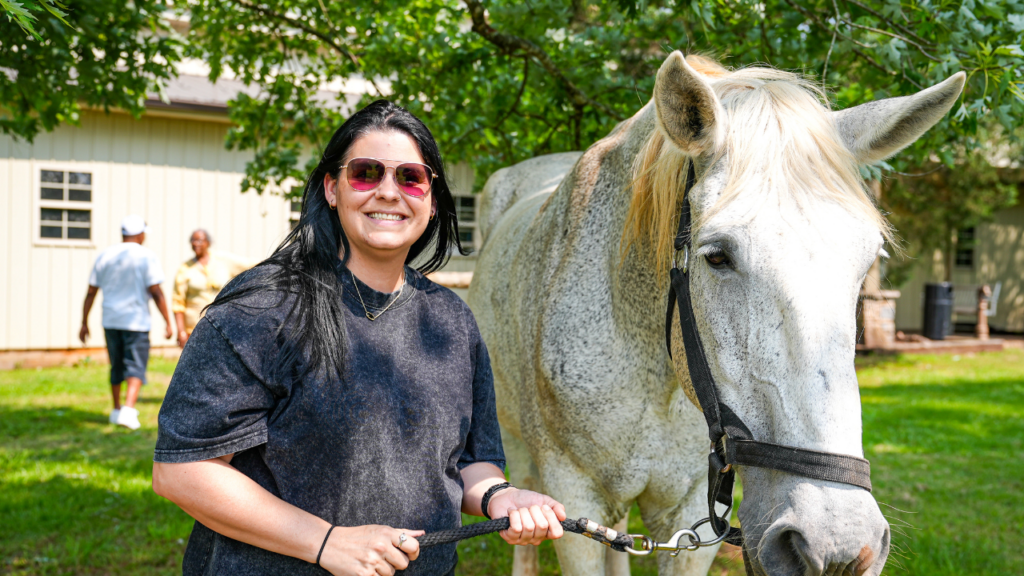
Alumni Support That Sticks
Beyond the fanfare, JourneyPure keeps alumni tethered through weekly Zoom groups, a custom recovery-coaching app and spontaneous pop-up trail rides. Those layers matter. Studies show that people who attend mutual-help meetings at least weekly for a year relapse far less often than peers who drift away. Those who’ve been through JourneyPure’s Nashville rehab program always look forward to returning to ring the bell, celebrating anniversaries and milestones.
A Glimpse Into Our Nashville Rehab’s Equine Therapy
For a closer look at equine therapy in action, the short film “Equine Therapy at JourneyPure At the River” captures a session. (Watch on YouTube: Equine Therapy at JourneyPure At the River).
The Bigger Picture
Nashville’s recovery landscape is crowded, yet JourneyPure believes the city’s soul dovetails with experiential therapies. That’s why they see breakthroughs in recovery that others might miss. During treatment at JourneyPure’s Nashville rehab, the patients also have opportunities to kayak the bordering Stones River, zip-line around the forest and, crucially, learn to sit with silence.
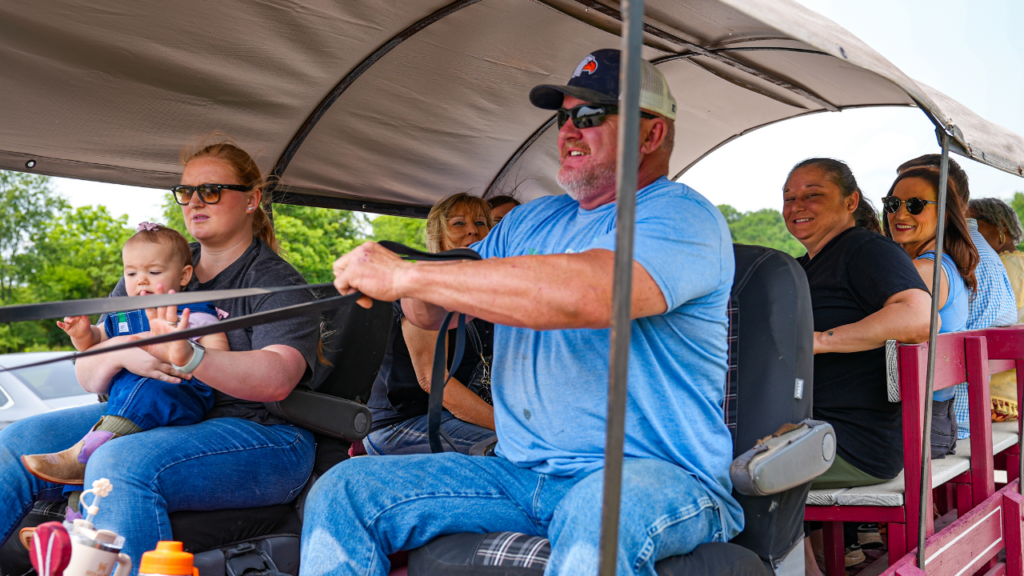
Looking Ahead At JourneyPure’s Nashville Rehab
JourneyPure plans to continue expanding its herd. The bell, meanwhile, waits. Next month, another alumnus will grip the frayed rope, breathe in the barn’s hay scent and let the iron tongue declare: still here, still sober, still swinging. And somewhere beyond the paddock fence, a horse’s ears will turn toward the sound, as if it understands the rhythm of recovery is measured not in years, but in reverberations.
